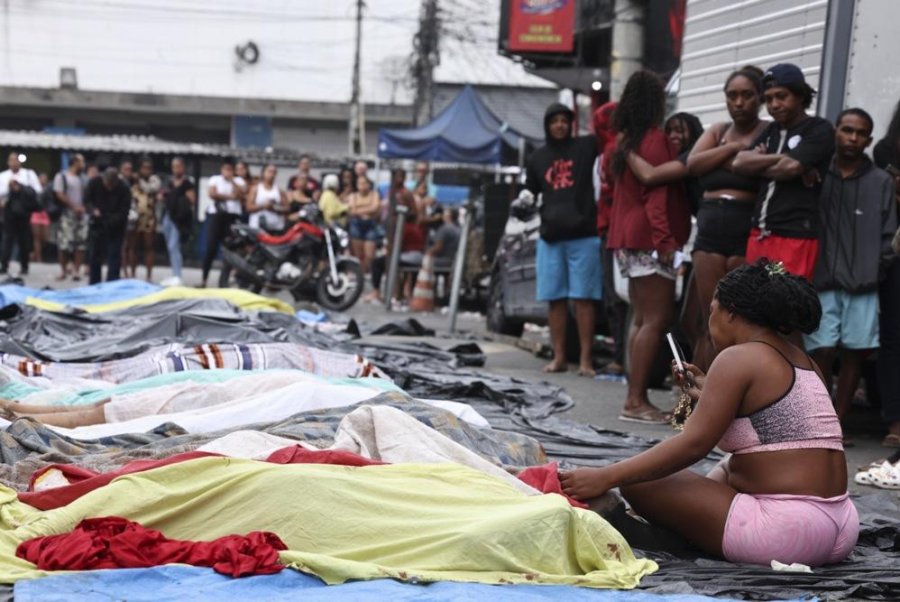Oct. 29 (UPI) — At least 119 people were killed, including four policemen, and 113 arrested in the largest anti-drug police operation in Rio de Janeiro’s history.
The operation took place in the Penha and Alemão favela complexes in the city’s north. It involved more than 2,500 officers, who used helicopters, armored vehicles and drones to enter densely populated areas where heavy gunfire was reported.
The raid, called Operation Containment, sought to carry out more than 100 arrest warrants against members of the Comando Vermelho criminal organization, one of Brazil’s most powerful and long-standing groups, which has a strong presence in Rio de Janeiro and other parts of the country.
The organization emerged in prisons during the 1970s and has since evolved into a sophisticated network involved in drug and arms trafficking, extortion and territorial control across several favelas.
Rio de Janeiro Gov. Cláudio Castro defended the operation, saying police have even been attacked by drones dropping explosives.
“This is the magnitude of the challenge we face. This is no longer ordinary crime. It’s narcoterrorism,” he wrote on his Instagram account.
Castro called on the federal government to strengthen support in the fight against criminal organizations operating in the state of Rio de Janeiro.
“This operation has little to do with public security. It’s a defensive operation. … For a war like this, which has nothing to do with urban safety, we should have far greater support. At this point, perhaps even from the Armed Forces,” he said at a news conference.
Authorities confirmed that four police officers were among the dead. The remaining victims are still being identified. However, the newspaper O Globo reported that residents of the Complexo da Penha moved more than 60 bodies to the São Lucas square in the community, which would raise the death toll to at least 124.
The federal government said it had not been informed in advance about the large-scale operation in Rio. Justice Minister Ricardo Lewandowski described the action as “quite brutal” due to the number of deaths, including civilians, and sent a delegation of ministers to meet with the governor and gather details.
In addition, the government authorized the transfer of criminal leaders to federal prisons and reiterated that federal cooperation with Rio is ongoing.
Rio de Janeiro’s Public Prosecutor’s Office said military-grade weapons, ammunition and communications equipment used by the Comando Vermelho were seized during the operation.
During the operation, public transportation was disrupted, schools were closed and access to basic services was restricted.
Victor Santos, Rio de Janeiro’s secretary of public security, told the newspaper O Tempo that the state cannot confront organized crime on its own.
“We’re talking about nine million square meters of urban disorder [in the Alemão and Penha complexes], with impassable alleys, irregular housing and criminals who control the territory. It’s impossible to confront this with state personnel alone,” the secretary said.
The United Nations Human Rights Office expressed concern over the use of excessive force in densely populated areas and reminded authorities that “security operations must comply with international human rights standards.”
The UN called for an immediate investigation following the police operations, and also urged Brazilian authorities to ensure justice for the victims and protection for affected communities, many of which were caught in the crossfire.
In December 2024, the federal government issued a decree updating the rules on the differentiated use of force by police, stating that police action may only occur to “achieve a lawful objective and within the strict limits of the law,” and that the use of firearms must always be a last resort.
Likewise, on January, two regulations were signed establishing guidelines for police interventions, including the creation of a “National Committee for Monitoring the Use of Force,” mandatory training for officers, the registration of those injured or killed in police actions, and the funding of less-lethal equipment to minimize harm to the population.

